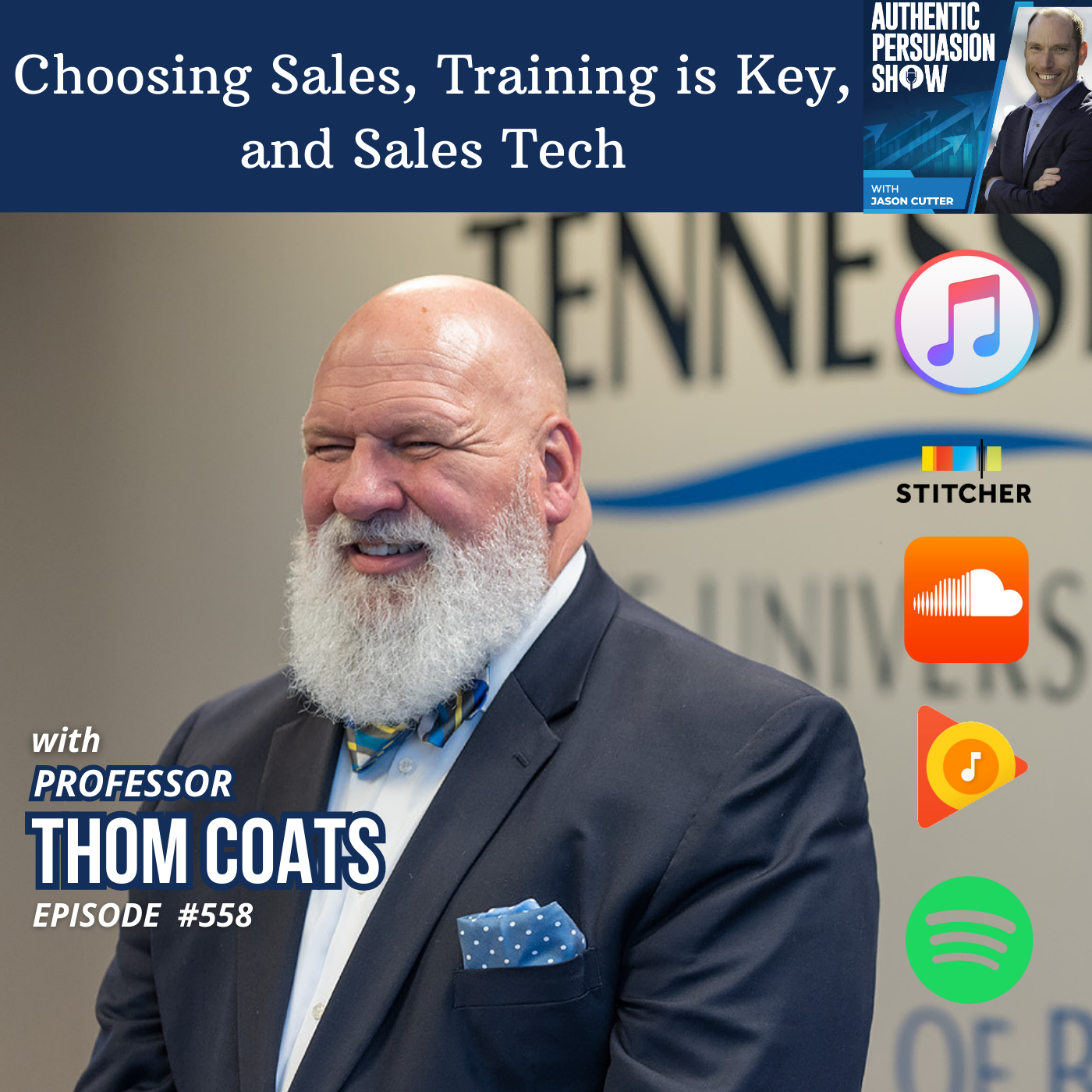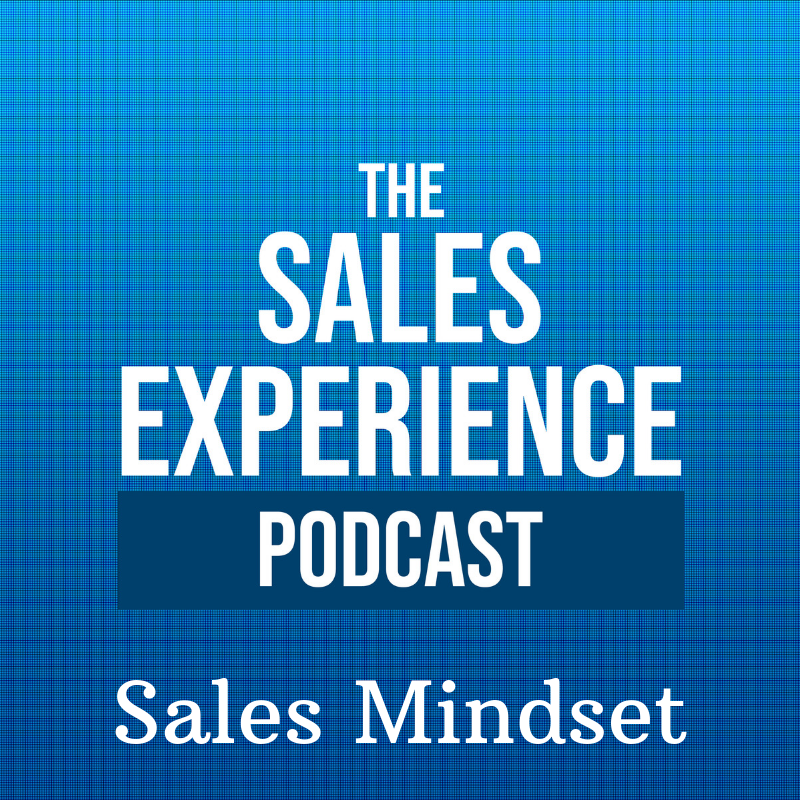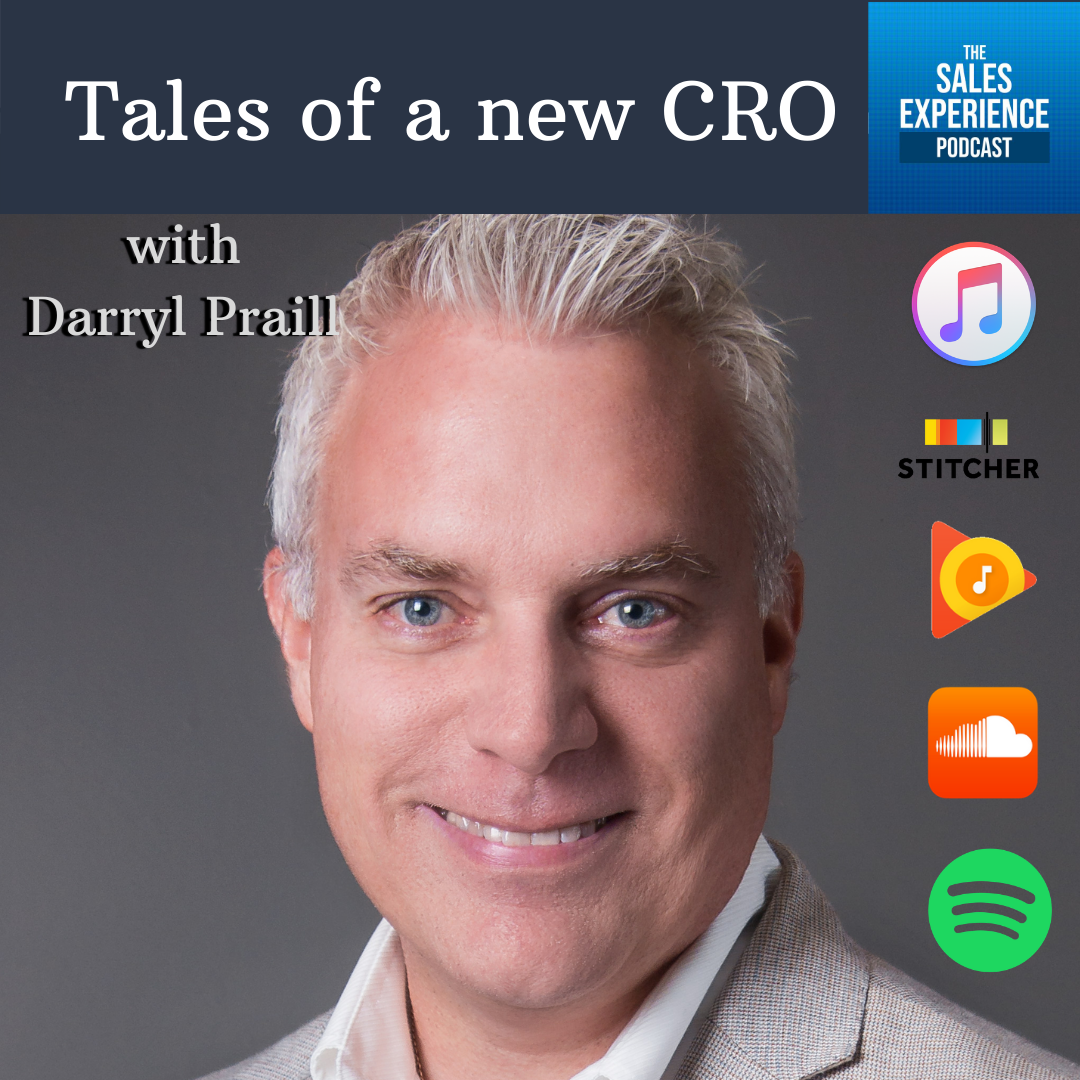Show Notes
In this episode I answer:
- What is the best way to prepare for a sales call?
If you have any sales or mindset related questions, send me a message through the contact page or via LinkedIn.
Episode 54 – Transcript
[Coming Soon]
Hello and welcome to Episode 54 of The Sales Experience Podcast. My name again is Jason Cutter. If you haven’t already, please subscribe to this wherever you download it from wherever you find podcast.
It’s on iTunes, Stitcher, SoundCloud, Spotify, Google Play podcast. It’s on the CutterConsultingGroup.com website. It’s on Castillo’s, it’s everywhere I could possibly put it.
If you can’t find it, you’re not sure where it is, or it’s not where you normally download it, send me a message through the CutterConsultingGroup.com website or through LinkedIn. Let me know where you’d like to find it, what would be easiest for you, I’ll make sure to get it on there as soon as possible.
When you’re subscribing if possible, rate it, leave a comment, all of that helps so much. I love that and I appreciate it very much. It helps other people see what the show is about what the value they could get and helps me with my focus and mission to change the landscape for sales and how sales is done.
The reason why if you’re new to the show, or if it’s been a while since you listened the beginning one, the reason why I call this the sales experience podcast is that my goal is to change the sales experience from the customer side, as well as how sales people do it.
So, what sales people are focused on in order to close sales, doing things in the right way for themselves so that they can sleep at night, as well as to help customers help prospects help those leads, convert from a prospect into a paying customer, a client. And not just that, not just being a customer, but becoming an advocate, a raving fan.
Somebody who is so happy that they could and might shout from the mountains and tell everybody they know about the kind of experience they had with you, which was totally different than what they were worried about. It’s totally different than what they feared what happened when interacting with a salesperson and what they were going to get and what they’ve always heard stories about or what other salespeople have done to them in the past that they regretted.
Because we’ve all had that experience where we come across somebody who has their intentions in mind, that salespersons using manipulation, trying to get their way trying to close the sale so they could get paid or keep their job or whatever it is, and the person walks away. I’ve walked away thinking, “Oh my gosh, what did I just do? That was a mistake, either. How do I undo this? Or how do I make sure nobody finds out that I made this mistake? I don’t want anyone to know I bought this and I screwed up.”
So that’s my focus, that’s my mission. I just want to recap that because it’s been a while since I talked about you may be wondering, who’s this crazy guy? Why does he call this a sales experience podcast? And why is he answering sales related questions?
And that’s the reason, that’s my mission and focus is to change the landscape of everyone who’s in sales, get more people to see themselves as a sales professional. So, stop doing what maybe they’re taught, or they learn or they see in movies, or they understand to be what is sales, but it’s not really a sales professional way of being.
And that’s why I’m answering these questions. Well, because this kind of covers lots of different things. And at some point, I’m going to get back to some theme weeks, where I go hard on a specific topic and dissect it for five days in a row.
For now we’re going through questions. So hopefully, that helps get you caught up. Let me get into some questions here with time I have left.
So the first one is what’s the best way to prepare for a sales call?
Now, of course, this depends just like any of these questions that I have, where it depends on what you sell, and what that process looks like. If you’re a sales person who’s let’s say on a dialer, your telemarketing, you’re cold calling, or you’re taking inbound calls, and you have a shorter sales cycle.
So, you’re dealing business to consumer, directly with consumers, then preparing for that sales call is about having your script in front of you. Knowing your script and understanding it what you’re going to say whether it’s a written script, or whether it’s in your head, you want to make sure you sound smooth.
Now, you don’t want to sound salesy, and you don’t want to sound inappropriate with it. Right, you don’t necessarily have to be perfectly polished and perfectly smooth. But if you have a script that’s written and you’re supposed to be reading it and all you’re doing is stumbling, people are going to hang up on you before giving you a chance, because you’re just going to sound bad.
You’re going to sound unprofessional and it’s going to freak them out, it’s going to worry them about wanting to give you money for your product or service, if you can’t even get through your intro or through your script.
So, if that means before you take a single phone call or make a single phone call, if you’ve got to take that script, if possible, take it home and roll your significant other, call your parents and sell it to them, enroll your dog. Whatever it is, go through it as many times as it takes for it to sound more natural.
Again, you don’t have to be perfectly perfect. Being too perfect will also trigger people to freak out. Your prospects that are going to worry that maybe you’re just a slick salesperson that’s out to get them. But you also don’t want to sound like a complete bumbling idiot.
Like, honestly, that’s just the way it is. So, have that available, have it in your head, have it smooth. Even if you’re reading it, I’m totally okay and supportive. And I’ve even done this in the past where I’ve written a script, and then I read it word for word just to stay on track.
There’s nothing wrong with reading the script, as long as you can still make it sound natural. Okay. So, that’s one thing to prepare. Another one is obviously knowing enough about your product, your service, what it is that you’re offering, and the solution that it provides.
What problem is it solving? What can it do for your prospects, and what type of prospects benefit the most from that? So depending on what you’re selling, and this is a whole host of things, it’s tough to say in a general sense.
But based on what you’re selling, how does it solve their problem? What problem does it solve? How is it better for them than any other solution out there, including doing nothing? And then what’s the pain points, and then where’s the urgency? Where’s the urgency in creating that?
And I covered that early on the week that I had recovered about respect and empathy, trust, hope and urgency. So make sure you cover all of that, make sure you listen to those episodes because that will set up the framework of the fundamentals of what you want to make sure is included in your conversations in sales.
So that’s how to prepare. Also understand the lead sources. So, whether you’re making outbound calls or receiving inbound calls, where are those leads coming from? What are those people know about you before speaking with you?
Whether they saw an ad, or they filled out a form, or they got a call from some other person and it’s being transferred to you, you’ve got to understand that message because your single job, especially in the beginning of that conversation, is to be a continuation of whatever they saw, whether it’s marketing, whether it’s somebody else, whether it’s person that set an appointment for you, and now you’re doing a follow up call; your conversation has to be a continuation of whatever was said or expectations that were said.
Whether it was again, you in an ad or over the phone or by somebody or by an email, it needs to be contiguous because if not, it will set off alarms to the prospect as well. They need to see you as an extension of whatever they heard or seen or read about the company before then. And you have to know that for any lead sources that are generating calls for you are leads for you to call out on. So, that’s super important.
Now, if you’re on a more of a business to business or a long sales cycle kind of role, then you have to take all of that which I just covered. And then there’s also preparing for the sales call by doing a lot of research or the necessary research to understand who it is that you’re calling.
So, if it’s a business to business calling your calling a business owner, or VP of Marketing or whoever that is, you need to know who you’re calling, why you’re calling what their specific issues might be that you’re trying to solve, and where their pain points might be. And then how you’re going to have the conversation go when you get them on the phone.
Now keep in mind, a lot of people use a lot of rapport building that may or may not work for you. So, you may or may not need to research, okay, they like fishing or they like sports, this is their favorite city they go to, this is their favorite kind of food, whatever that is. You may or may not need to go into that detail which a lot of sales people think they do. But just do all of that research before getting into.
Now, over time, when you’ve done a sales job enough, or you’ve been in the role long enough, you’ll find that your prep time before a sales call goes down, and goes down and down and down over time. Such that sometimes you can just get on the phone without any prep because you know how to handle any situation that comes up and you can go on the fly.
So, just keep that in mind. When you’re new, it’s going to be more prep. But be careful because I see a lot of people, especially new salespeople, and I covered about this in the behavior weeks as well. Especially the analysts is you’ll get stuck in analysis paralysis, trying to prepare for every situation that could happen on a call, every option, every direction could go, writing out your intro, writing out your questions, writing out all the information about a prospect of the marketing, having your objections ready, having everything good to go and you’re preparing so much.
It’s like when somebody goes to the shooting range, and it’s like ready, aim, aim, aim, aim, aim, aim. Ready, aim. Ready. Okay. Now let’s go to lunch. Okay, Ready, aim, aim. And it’s just that and there’s never fire. So, you got to keep that in mind and be careful.
I’ve seen that before. I’ve even got stuck in that loop before where you’re just thinking of every single scenario so much that you don’t actually pull the trigger and either make that call or make yourself available for the call, or go knock on that door or go walk into that business, whatever it is. And so you’ve got to make sure you just do enough prep to get it going and then see how it goes.
And also keep in mind, in the beginning, especially if you’re new to sales in that role with that company, in the beginning, it’s going to suck. In the beginning, it’s going to be rough. You’re going to have marbles in your mouth, you’re not going to be prepared for every single option.
All of that comes only with experience. So, you’ve got to give yourself the latitude to go out there, give it a shot, fall on your face, sometimes, mess up, learn some lessons, take some mental and physical notes afterwards. Watch the game tape which I covered early on in the podcast episodes. Watch that footage, listen to the recording, listen to your calls, make some adjustments and keep doing it.
Just understand that over time you keep doing it and keep trying to get better, you will get better. Hopefully, that helps and preparing for your sales calls, whatever you’re selling, whether it’s business to consumer business to business.
And that’s it for another episode. Again, make sure to subscribe, rate, share, send me comments. Spread this to everyone that you know as much as possible. And as always remember that everything in life is sales and people will remember the experience you gave them.
![[E54] Q&A Week: How to prepare for a sales call](https://episodes.castos.com/salesexperiencepodcast/images/TSEP-Cover-QA.png)


